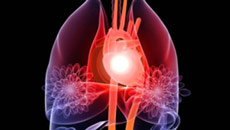Despite being labeled as a healthy alternative to cigarettes, e-cigarettes may increase the virulence of drug-resistant and potentially life-threatening bacteria, a study has warned.
What is more, researchers found the vapour is also decreasing the ability of human epithelial cells to kill pathogens.
Researchers tested the effects of e-cigarette vapour on live methicillin-resistant Staphylococcus aureus (MRSA) and human epithelial cells.
MRSA commonly colonises the epithelium of the nasopharynx where the bacteria and epithelial cells are exposed constantly to inhaled substances such as e-cigarette vapour and cigarette smoke.
“The virulence of MRSA is increased by e-cigarette vapour,” said lead investigator Laura E Crotty Alexander, assistant professor of medicine in pulmonary and critical care at University of California, San Diego (UCSD).
Exposure to e-cigarette vapour increased the virulence of the bacteria, helping MRSA escape killing by antimicrobial peptides and macrophages.
However, the vapour did not make the bacteria as aggressive as cigarette smoke exposure did in parallel studies her group conducted, Crotty Alexander added.
To conduct the e-cigarette vapour experiment, the researchers grew MRSA in culture with vapour concentrations similar to inhalers on the market.
However, when MRSA is exposed to regular cigarette smoke, their virulence is even greater.
Unfortunately, while e-cigarette vapour is increasing bacterial virulence, Crotty Alexander found that the vapour is also decreasing the ability of human epithelial cells to kill pathogens.
The study was presented at the 2014 American Thoracic Society International Conference recently.





